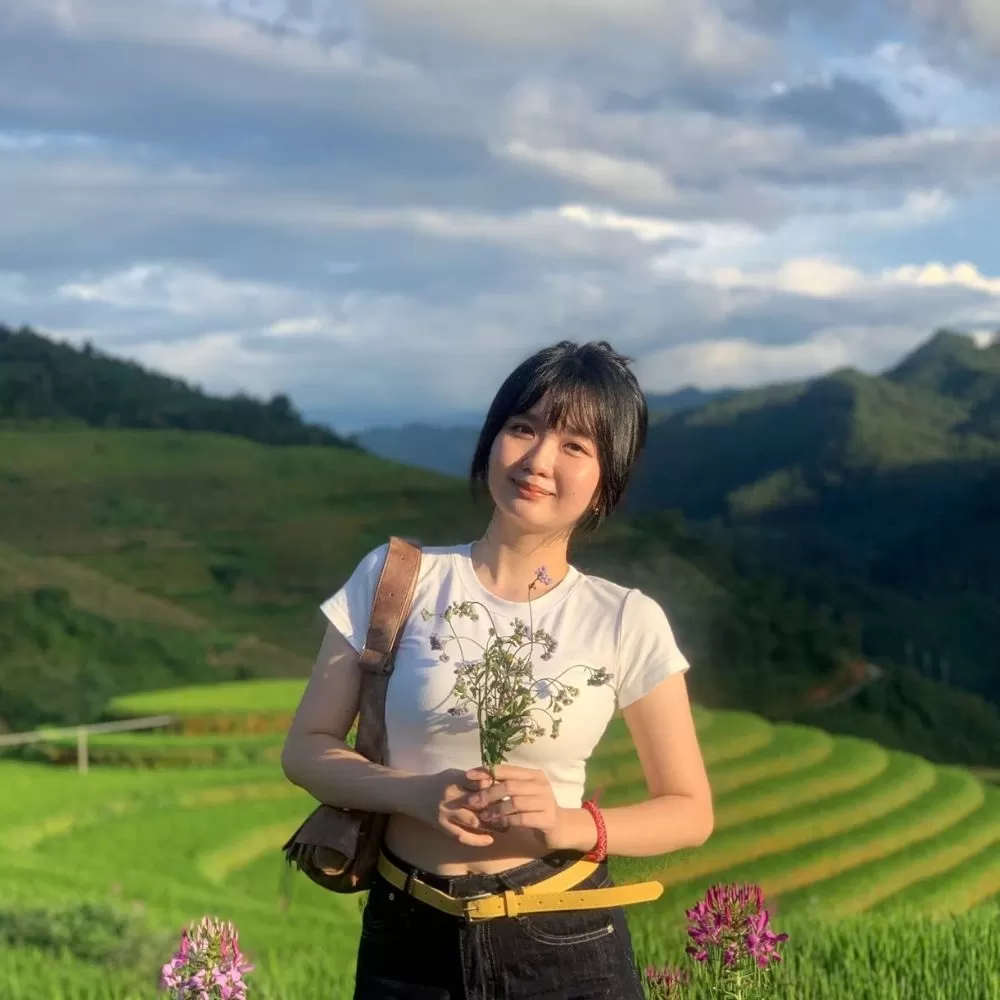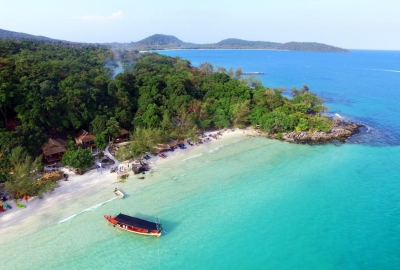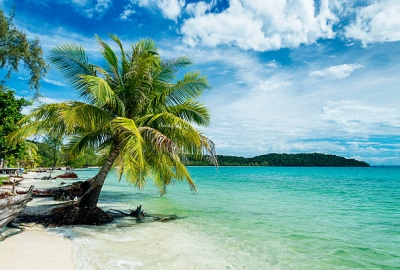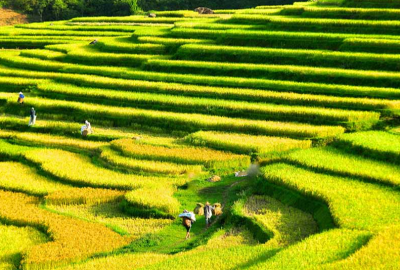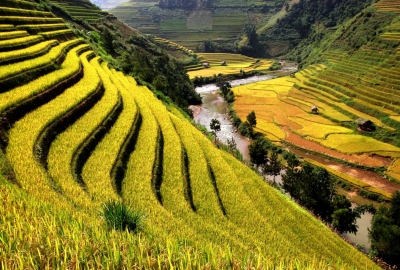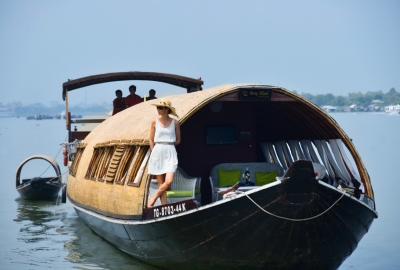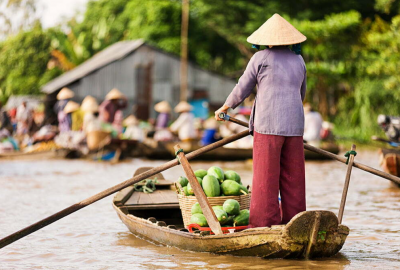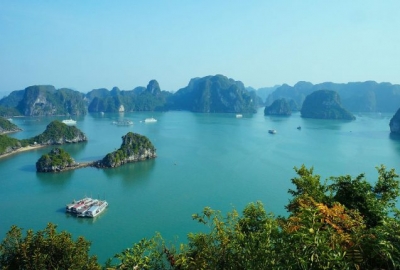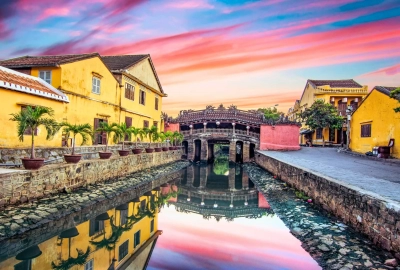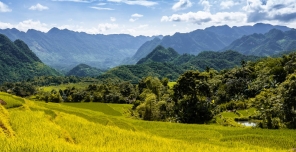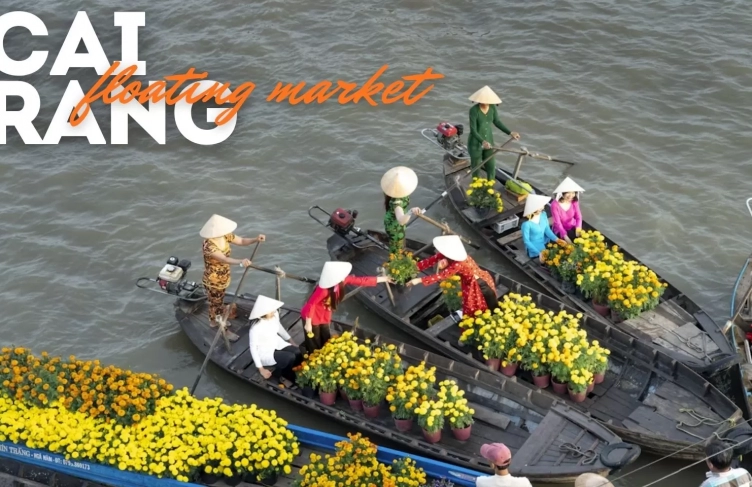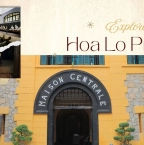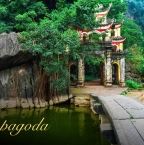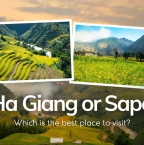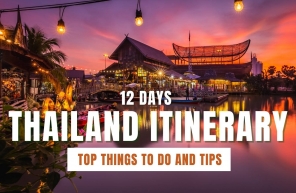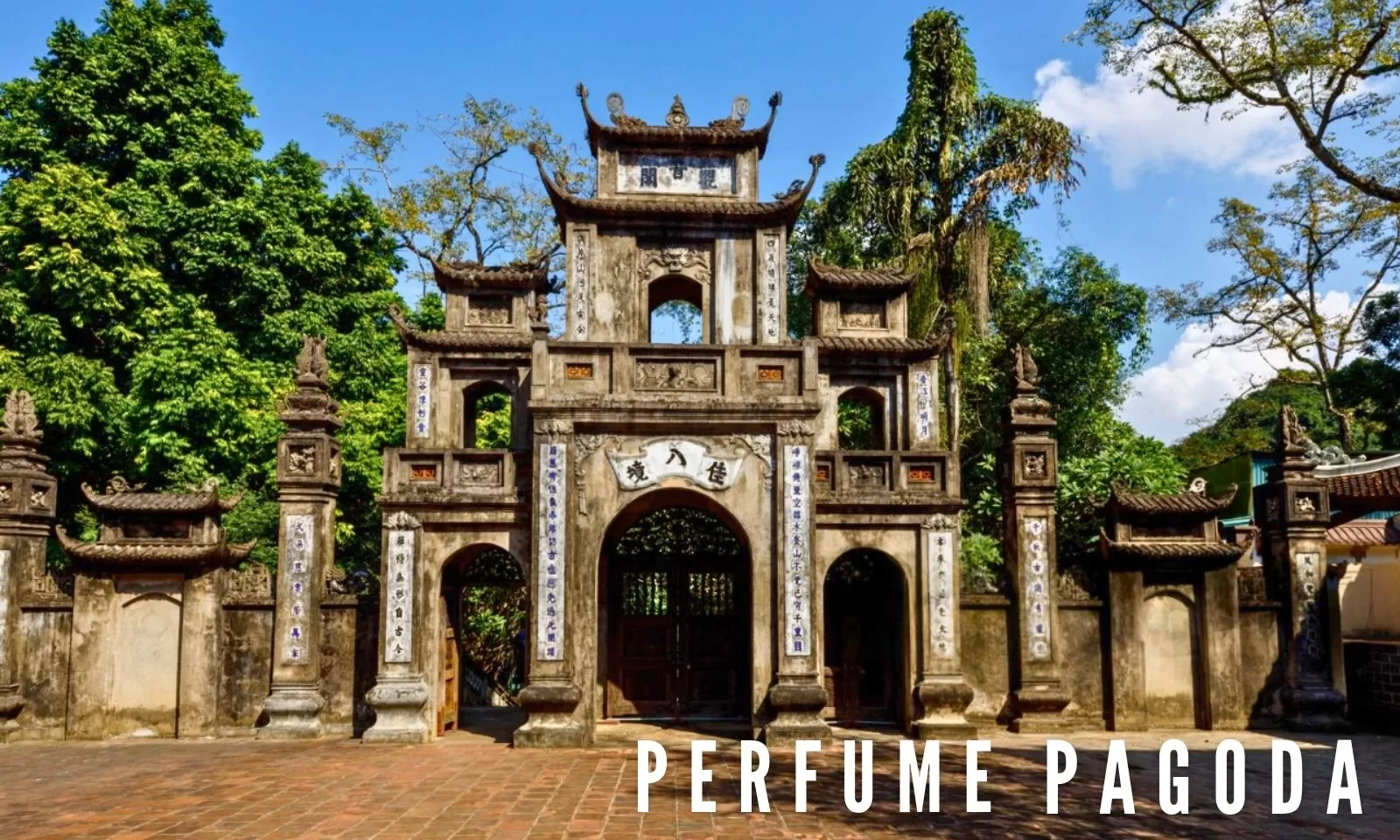
Perfume Pagoda: A complete guide for travelers

Hidden amidst the majestic limestone peaks of northern Vietnam, The Perfume Pagoda is a revered Buddhist pilgrimage site and a mesmerizing natural wonder. Each year, thousands of visitors embark on a scenic boat journey along the Yen River, followed by a trek to the sacred Huong Tich Cave, home to centuries-old temples and breathtaking views. Whether you're drawn by spiritual devotion or a love for nature, The Perfume Pagoda offers a truly unique experience.
Join us as we explore its rich history, cultural significance, and essential travel tips for your visit!
Table of Contents
Where is The Perfume Pagoda?
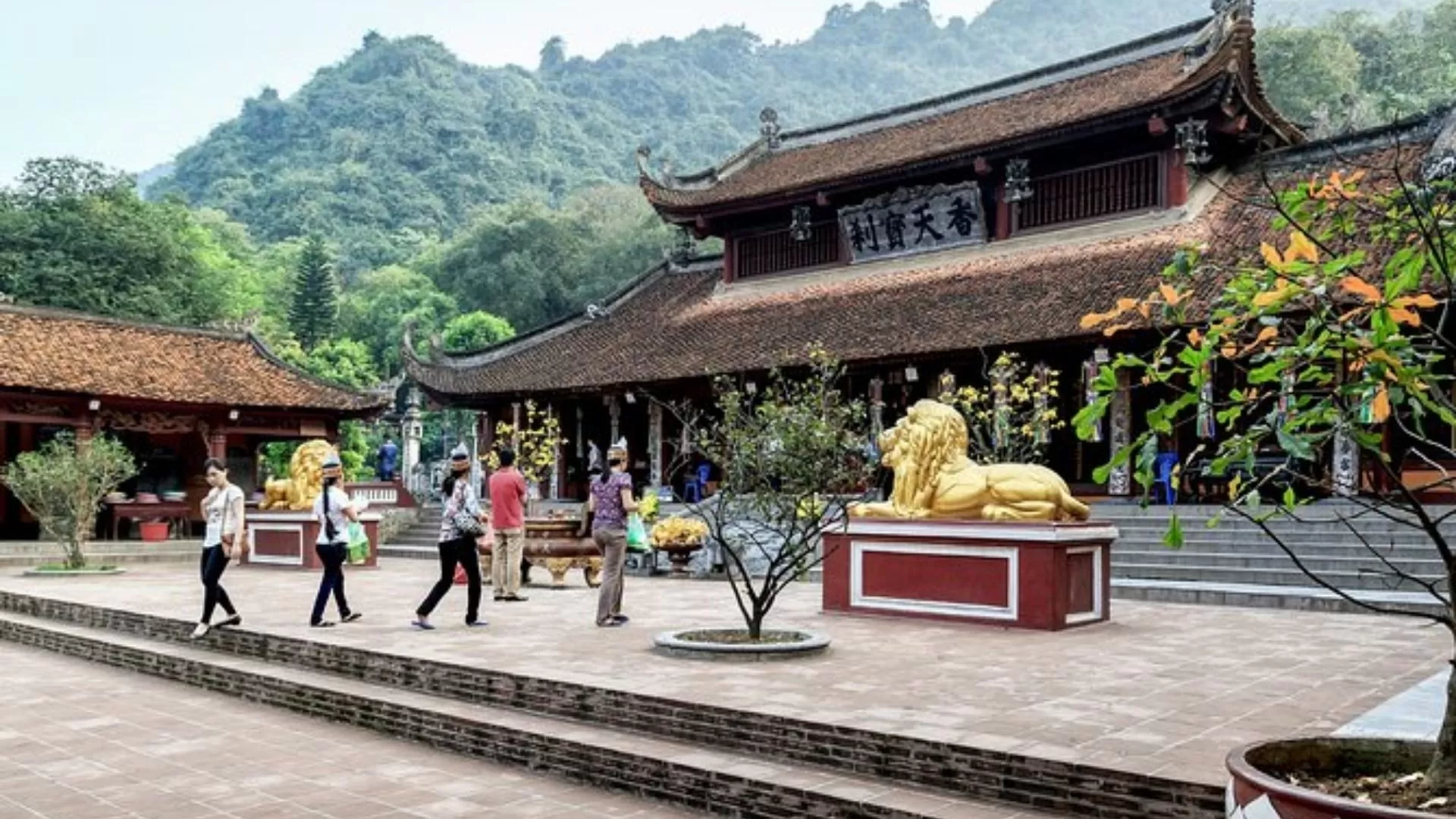
Located about 60 kilometers southwest of Hanoi, The Perfume Pagoda sits within the Huong Son (Perfume Mountain) range in My Duc District. This vast complex consists of multiple pagodas, temples, and shrines built into limestone mountains, with Huong Tich Cave serving as the spiritual heart. Unlike most pagodas in Vietnam, this site is not accessible by road alone - you must embark on a boat journey along the Yen River before reaching the complex.
How to get to The Perfume Pagoda from Hanoi
There are several transportation options to get to Duc Wharf, the gateway to The Perfume Pagoda:
Bus: Take Bus 103 from My Dinh Bus Station. It operates from 5 AM to 8 PM, with departures every 15 minutes.
Motorbike: A flexible option for those who enjoy adventure, allowing stops at scenic spots along the way.
Private car rental: The most convenient and comfortable choice, ideal for groups or families.
From Duc Wharf, you must take a traditional wooden boat along the Yen River to reach the pagoda complex.
The history of The Perfume Pagoda: A sacred pilgrimage
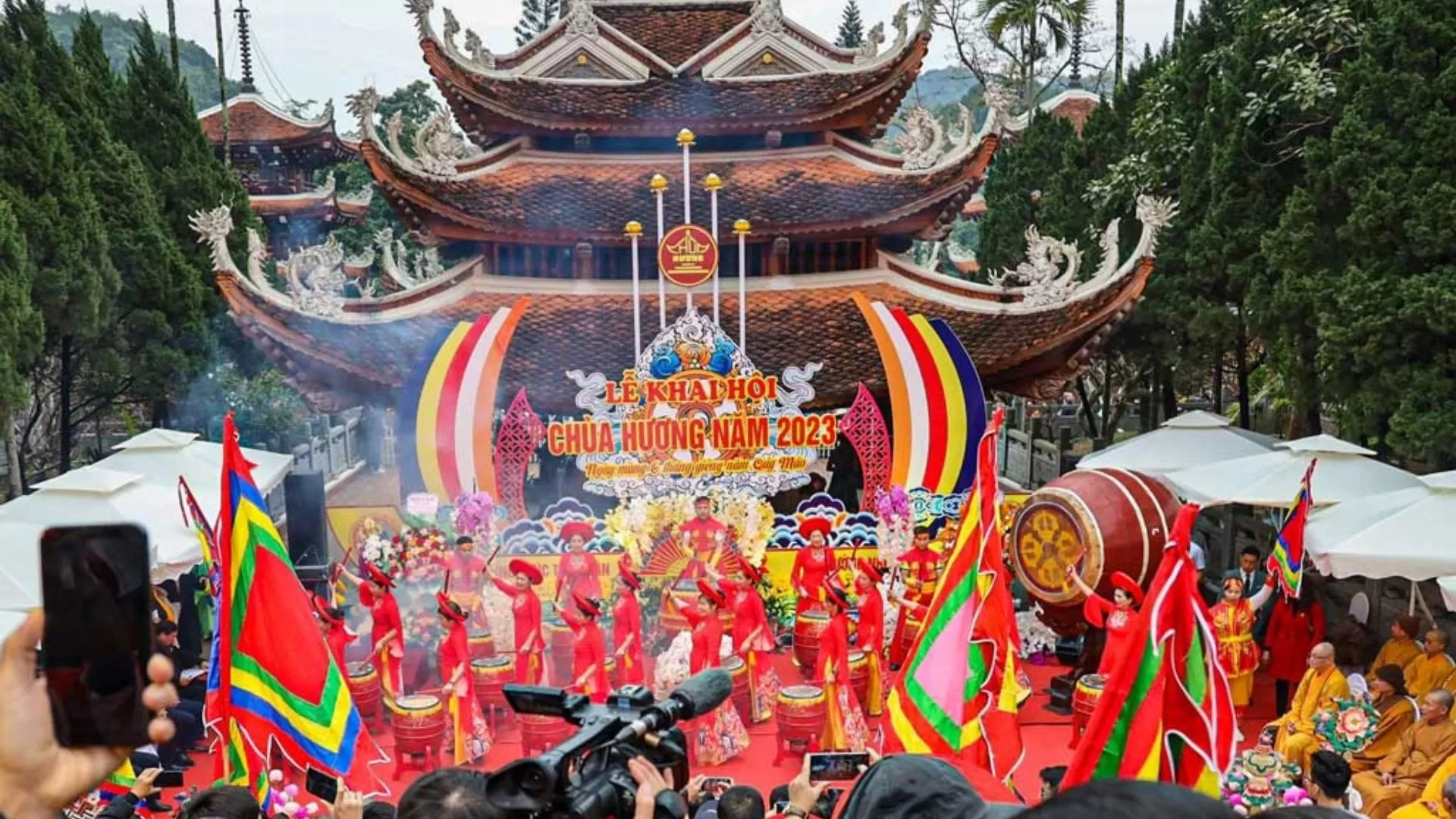
Nestled in the limestone mountains of Huong Son, The Perfume Pagoda has been a revered Buddhist site since the 15th century. Legend tells of a monk who meditated in Huong Tich Cave, inspiring the pagoda’s development during the Le Dynasty. In 1686, Zen Master Tran Dao Vien Quang established Thien Tru Pagoda, and in 1770, Lord Trinh Sam inscribed the cave entrance with "The Most Beautiful Cave Under the Southern Sky," highlighting its spiritual significance. Dedicated to Avalokiteshvara Bodhisattva, it is believed to bring blessings of fertility, health, and prosperity. Despite centuries of change, The Perfume Pagoda remains a sacred pilgrimage site, attracting thousands for prayer, meditation, and renewal.
Today, The Perfume Pagoda remains a revered pilgrimage site, especially during the annual festival season, when thousands of devotees and visitors gather to take part in one of Vietnam’s most significant Buddhist celebrations.
Held from the 6th day of the first lunar month to the third lunar month, the Perfume Pagoda Festival is Vietnam’s largest Buddhist celebration, attracting countless pilgrims for prayer ceremonies, rituals, and cultural festivities. Visitors can enjoy folk performances, calligraphy exhibitions, and vegetarian specialties, though those seeking tranquility may prefer visiting outside the festival season.
You may want to read: Festivals In Hanoi: Top 6 Traditional Festivals Should Visit
A step-by-step journey to The Perfume Pagoda
The journey to The Perfume Pagoda is a blend of breathtaking landscapes, ancient temples, and spiritual significance. Each step offers a unique glimpse into Vietnam’s rich cultural and religious heritage.
Step 1: A scenic boat trip on the Yen River
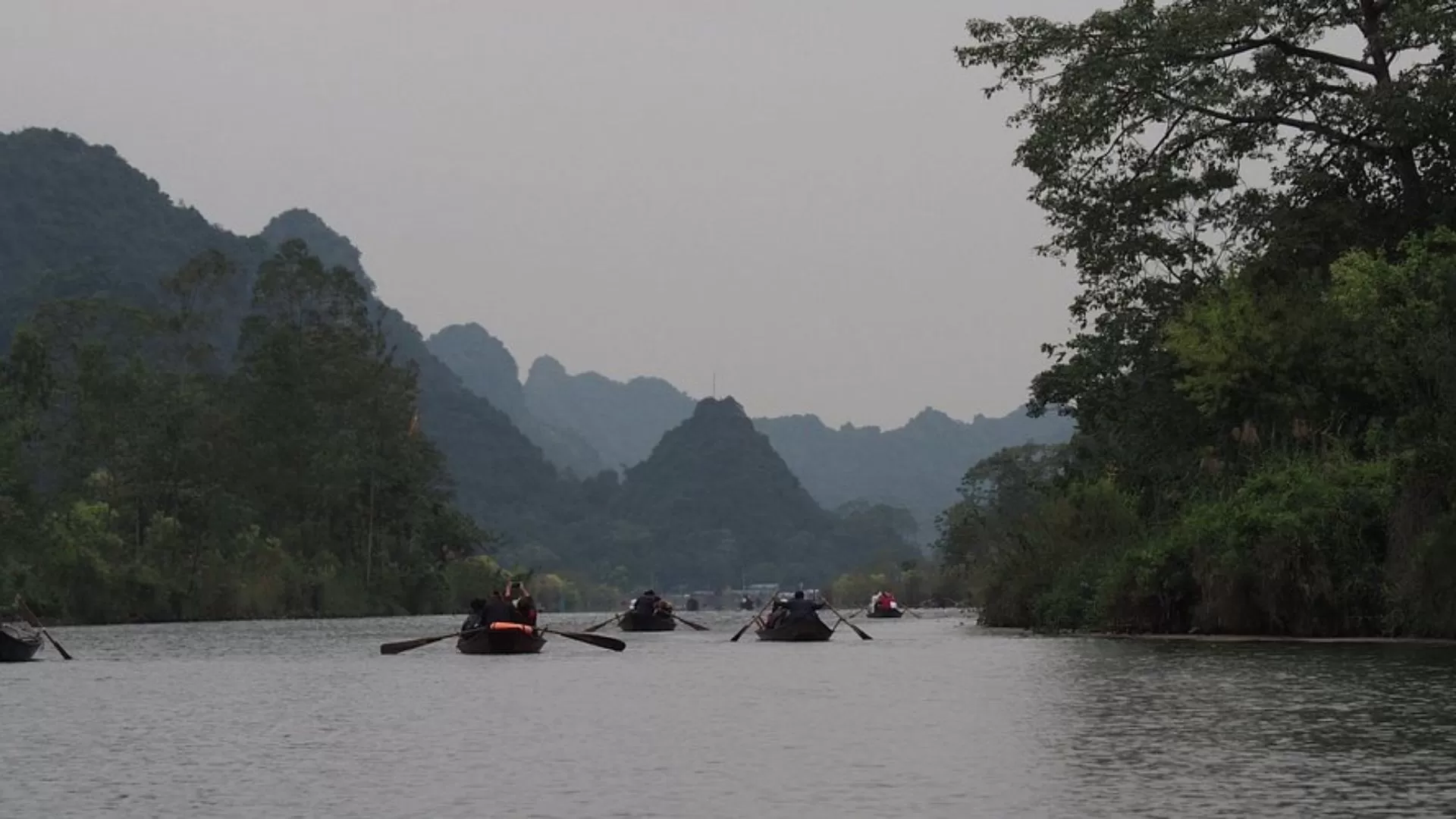
Starting at Duc Wharf, visitors board traditional wooden boats rowed by local boatwomen for a one-hour ride along the Yen River. This tranquil journey passes lush forests, towering limestone mountains, and several significant landmarks:
Den Trinh (Registration shrine): The first stop where pilgrims make offerings and pray for a safe journey, symbolizing the act of presenting oneself before the sacred pilgrimage.
Ngoai Bridge & Tro Wharf: These scenic spots are perfect for appreciating the mystical atmosphere of the Huong Son landscape.
Dai Binh Bridge: This significant checkpoint marks the transition from the river journey to the land portion of the pilgrimage.
Step 2: Arriving at Thien Tru wharf – The gateway to The Perfume Pagoda
Disembarking at Thien Tru Wharf, visitors are greeted by the Thien Tru Pagoda (Heavenly Kitchen Pagoda), built in the 17th century. Known for its intricate carvings and serene atmosphere, it is a place for lighting incense and offering prayers. Nearby, Giai Oan Pagoda features the Thanh Tri Well, believed to cleanse misfortune and bring peace. It is an important stop for pilgrims seeking spiritual purification before continuing their ascent.
Step 3: Ascending to Huong Tich Cave – Trek or cable car?
From Thien Tru Wharf, you must make your way up to Huong Tich Cave, the holiest site of The Perfume Pagoda complex. Visitors can choose between:
Hiking (1-hour): A scenic trek through dense forests, passing Tien Pagoda, Cua Vong Shrine, and Hinh Bong Pagoda, each carrying its own spiritual meaning.
Cable car (10-minute): A more comfortable and time-saving option, offering aerial views of the limestone mountains, valleys, and rivers below.
Ticket prices for 2025:
| Types of ticket | Adult | Children |
Boat & Entrance (Huong Tich route) | 230,000 VND (~$9.40) | 65,000 VND (~$2.65) |
Boat & Entrance (Long Van - Tuyet Son route) | 85,000 VND (~$3.50) | 50,000 VND (~$2.00) |
| Cable Car (Round trip) | 260,000 VND (~$10.60) | 180,000 VND (~$7.35) |
Step 4: Exploring Huong Tich Cave – The heart of The Perfume Pagoda
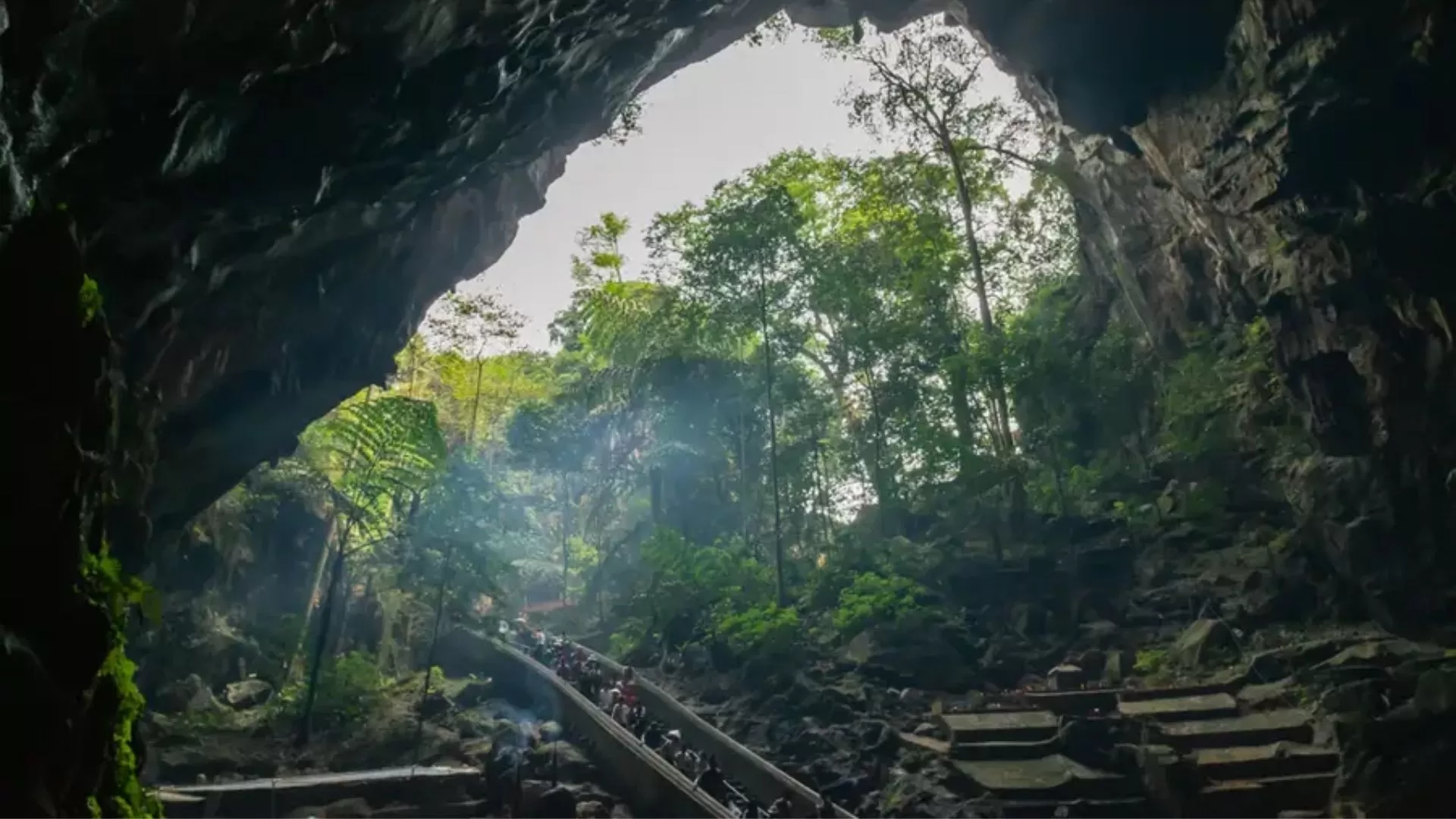
At last, you reach Huong Tich Cave, considered the most sacred part of The Perfume Pagoda pilgrimage. Stepping inside, you will be awestruck by the natural beauty and spiritual ambiance of this revered cave.
Highlights of Huong Tich Cave:
The "Mouth of the Dragon" entrance – giving the cave an otherworldly and mystical appearance.
The Greenstone Statue of Avalokiteshvara Bodhisattva – surrounded by incense and offerings.
Mystical stalactites & stalagmites – believed to bring prosperity, fertility, and longevity.
For a deeper experience, visitors can also explore Long Van Cave and Tuyet Son Cave, both known for their serene beauty and striking rock formations.
Experiencing more sacred pilgrimage site in: Top 7 Beautiful Temples And Pagodas In Hanoi Must Visit
Best time to visit The Perfume Pagoda
The ideal time to visit The Perfume Pagoda depends on whether you seek a lively festival atmosphere or a peaceful retreat.
January – March (Lunar Calendar): Peak pilgrimage season with the Perfume Pagoda Festival, attracting thousands of visitors for religious ceremonies and cultural activities.
May – September: A quieter time when red silk cotton flowers bloom along Yen Stream. However, summer months can be hot and rainy, making trekking challenging.
October – December: Ideal for a peaceful visit, with water lilies blooming on Yen Stream and white pampas grass fields enhancing the scenic beauty.
Essential travel tips for visiting The Perfume Pagoda
To ensure a smooth and enjoyable trip, keep these key tips in mind:
Dress appropriately – Wear modest clothing covering your shoulders and knees, as this is a sacred site.
Carry cash – Most services, including boat rides, entrance fees, and food stalls, only accept cash.
Wear comfortable shoes – The trek to Huong Tich Cave can be challenging, so sturdy footwear is essential.
Respect local customs – Maintain a peaceful demeanor, follow offering etiquette, and avoid littering.
By planning ahead and respecting local traditions, you’ll have a meaningful and unforgettable experience at The Perfume Pagoda.
A visit to The Perfume Pagoda is more than just a sightseeing trip—it is a spiritual journey through breathtaking landscapes, ancient temples, and sacred caves. Whether you come to seek blessings, explore Buddhist history, or immerse in nature, this pilgrimage site offers a truly unforgettable experience.
Plan your trip today and embark on a journey of culture, spirituality, and adventure at The Perfume Pagoda!
Dream about your trip to Asia, in private
We are here to make it happen with youFREE QUOTE, WITHOUT OBLIGATION

